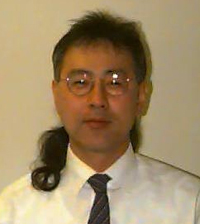Applying Biological Concepts to Network Design
 3.3.03 - If you were to consider the evolution of the Internet as the basis for a campy horror movie, the plot might go something like this: It starts with a small, seemingly unassuming, yet ultimately aggressively self-replicating organism that spreads rapidly over every, as yet un-networked, part of the Earth, with no end in sight to its apparent interpretation of world domination. And, if anything, the concept of the Earth may even be too limiting.
3.3.03 - If you were to consider the evolution of the Internet as the basis for a campy horror movie, the plot might go something like this: It starts with a small, seemingly unassuming, yet ultimately aggressively self-replicating organism that spreads rapidly over every, as yet un-networked, part of the Earth, with no end in sight to its apparent interpretation of world domination. And, if anything, the concept of the Earth may even be too limiting.
This generalization, though, belies the enormous complexity of the behavior of the Internet. It's a highly dynamic environment with network loads dependent on users' locations, their time of day, relative sophistication of their regional network infrastructures, and even, to some extent, users' skill levels and preferences. For applications to survive and function in this environment, they need to be adaptable and scalable - just like biological organisms. So why not apply principles from biology to network design to investigate how the Internet might evolve?
In a project called BioNet, Tatsuya Suda, a professor in Information and Computer Science at UCI, is doing just that, working with two postdocs and three Ph.D. students, and supported by industrial partner NTT in Japan and funding from NSF, DARPA, and the U.S. Air Force.
"Bees are a good model here," says Suda, "because, as individuals, they interact with each other, but the behavior of the colony as a whole appears to be decidedly different. But it's the combination of all the individual interactions, in fact, that creates the larger societal behavior."
Suda created the notion of "cyber entities," individuals with their own behaviors in the Internet. Each cyber entity implements some service, like booking hotels, renting cars, and so forth. Under certain conditions, cyber entities move from one node to another, under other conditions they clone themselves, under still others they die.
Suda has adapted the idea of "currency" by implementing the exchange of energy between cyber entities. Cyber entities provide services; each time one's service is used by another entity, the provider gains energy. "So your energy level is directly proportionate to the amount - value, if you wish - of your services," says Suda. "It's like the Darwinian principle of natural selection. If you gather enough energy, you can clone yourself. Conversely, if you offer a service that no one wants, you lose energy and can ultimately die out."
Using these basic principles, Suda and colleagues have algorithmically encoded a broad set of cyber entity behaviors, then they run simulations on the net to determine how individual behaviors manifest themselves as societal behavior. They also experiment with various application architectures using different sets of cyber entities.
NTT, primarily a network company, is supporting this work because it wants to move into the applications domain. Once this project is complete, the company expects to be able to create applications that fit given user profiles. NTT then will be able to customize applications, in effect enabling applications to adapt.
"We're in the basic research phase and finishing up feasibility testing," says Suda, "to determine whether basic biological concepts are relevant to the evolution of the Internet."
All indications are positive that the group is on to something useful. So the next phase is to raise the level of implementation "from a toy to a commercial-level product," then deploy it onto the existing Internet. Interesting work lays ahead for others, according to Suda, with respect to how to implement appropriate business models and tune them, with the anticipated help of sociologists, to reflect realistic human behavior.
This project has important ramifications beyond computer science and biology: It is contributing to an interesting debate about the Internet with respect to whether it will ultimately scale beyond the ability of humans to control it.
"Reaction to this project tends to be one of two extremes," says Suda. "Free marketers like it because they believe in individuals' right to 'duke it out' on the network: Whoever provides the better services will prevail. Others don't like it because they think the net should be a 'democratic institution' in the best sense of that phrase: All should be able to access the net and get their fair share. They think our approach won't work because they believe the net may require some coordination and control to enable all users to access and use it. But what if the Internet can begin to live its own life, organically, without human intervention?"
Suda imagines a world in which each of us has the opportunity to implement our own services in cyber entities (such as providing technical writing services, tutoring, and so forth). Once they're released onto the net, they will have their own will, and they will be able to "meet" with other cyber entities in cyberspace to create new or integrated services. Cyber entities that provide popular services succeed (clone themselves), and those that provide no-so-popular services die. "This strategy, in fact, makes the system very robust, scalable, and adaptable precisely because of the lack of human control," he says.
